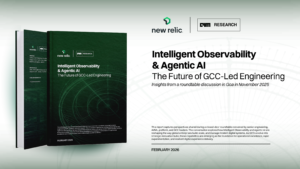AI-powered clinical digital assistants have evolved from the early usage of Personal Digital Assistants (PDAs) in healthcare. PDAs were mobile devices that gave healthcare workers rapid access to medical information, which improved decision-making and reduced medical mistakes. Over time, advances in artificial intelligence (AI) and natural language processing (NLP) have substantially improved the capabilities of these digital assistants.
AI integration into healthcare began in the 1990s and early 2000s with systems like MYCIN and INTERNIST-1, albeit these early systems were not widely used. The exponential development in processing power, the expansion of genetic datasets, and the widespread use of Electronic Health Records (EHR) have prepared the path for increasingly advanced AI applications in healthcare.
Oracle today announced the general availability of the Oracle Clinical Digital Assistant for ambulatory clinics in the US. This innovative mobile offering leverages generative AI, clinical intelligence, multimodal voice and screen-driven assistance, and simplified workflows into a single, unified solution, allowing providers to focus entirely on patient care. Integrated with the Oracle Health Electronic Health Record (EHR), the solution revolutionizes the doctor-patient experience by incorporating clinical automation, conversation-based note generation, and proposed clinical follow-ups directly at the point of care.
The Oracle Clinical Digital Assistant eliminates the need for providers to interrupt appointments to navigate through drop-down menus or scroll through screens. By simply asking the assistant, they can instantly access critical elements of a patient’s medical history, such as the latest blood test results. During the appointment, the solution captures comprehensive notes using the provider’s preferred templates in the patient’s EHR record, saving hours of caregiver time each day.
Unlike other solutions, Oracle Clinical Digital Assistant generates notes in minutes rather than hours and supports next-step actions, including drafting referrals and prescription orders for approval, and scheduling follow-up labs and appointments. This improves the accuracy of medical records and workflow efficiency.
Physicians at 13 early adopter organizations, including Billings Clinic, Covenant Health, Hudson Physicians, St. John’s Health, and T.J. Regional Health, have reported saving on average more than four and a half minutes per patient and 20-40% in documentation time daily.
“Oracle Clinical Digital Assistant is the most important EHR technology update that I am going to see in my career. Since the 1990’s, EHR’s have turned physicians into keyboard junkies. This will change that,” said James Little, MD, primary care physician, St. John’s Health. “Our physicians who have been using this technology have been able to document their patients’ visit in real-time, allowing them to leave at the end of the day with good, quality notes. Time spent after hours documenting is no longer needed.”
“While building relationships is essential to understanding my patients and how to best treat them, it’s difficult to do that sitting behind a computer screen,” said Dr. Ryan McFarland, family medicine practitioner, Hudson Physicians. “Oracle Clinical Digital Assistant has been a game-changer in this regard. I can simply talk to and focus on my patients, while in the background the system is capturing all the details, notes, and next-step actions. Not only does this lead to a better experience for me and my patients, but it has significantly diminished the time I take post-appointments or after-hours updating notes.”
The solution automates the entire documentation process and synchronizes it back to the patient’s individual medical record without copying and pasting, significantly reducing the manual work that contributes to burnout. Providers complete the interaction by reviewing, modifying, and approving the notes and next-step actions on their computer or mobile device.
“Practitioners spend upwards of 20-35% of their time on administrative work. This isn’t sustainable and contributes to burnout. We need our providers focused on patient needs,” said Seema Verma, executive vice president and general manager, Oracle Health and Life Sciences. “Oracle Clinical Digital Assistant’s groundbreaking AI technology solves this problem and brings the joy back to the practice of medicine and healthcare.”
What other practitioners have to say:
“What I appreciate most about Oracle Clinical Digital Assistant is the ability to regain eye contact and calmly pay attention to what the patient is really telling me,” said Dr. Alicia Brooks, Medical Director Fort Loudoun Primary Care, Covenant Health. “Oracle Clinical Digital Assistant helps me not waste time in the exam room having patients repeat themselves because I’m trying to get their information into the system. I can focus on understanding their concerns and working through a clear diagnosis and plan to thoroughly meet their needs. This is much more satisfying to me and the patient.”
“Oracle Clinical Digital Assistant is saving me a lot of time, up to 10-12 minutes per patient,” said Patricia Doolin, APRN, T.J. Regional Health. “The notes are more accurate, I get to see more patients, and I get more sleep at night!”
“I love Oracle Clinical Digital Assistant! It’s so cool and so smart,” said Dr. Marjorie Albers, MD, Billings Clinic. “It’s letting me see more patients, and I’m getting out an hour earlier. I only spend a minute or two editing the note.”





